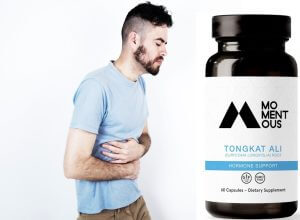

Last Update: 12th April 2023
Nestled deep in rainforests for millions of years, Tongkat Ali (Eurycoma Longifolia) is quintessentially Malaysian; a story that began as early as 1600s.
Tongkat Ali is used by the indigenous people (i.e Orang Asli) who live in the remote rainforests of Malaysia for centuries. This herb is now consumed by more than 500 million people across the globe.
This is the story of Malaysian Tongkat Ali. We shall go back in time to revisit its rich history, the evolution of Tongkat Ali, and other important facts about Malaysian Tongkat Ali. You will also learn what makes Malaysian Tongkat Ali unique and truly special.
In Malaysia, Tongkat Ali is used as male tonic for energy.
Professor Kerry Bone, Medical Herbalist (Australia)
Malaysian Tongkat Ali has a rich history that attracts world attention. Malaysia is known for its preservation efforts, harvesting, research & development and decades of technical innovation to deliver quality Tongkat Ali extract that meets international quality and safety standards.
According to a book published by researcher Goreja in 2004, Tongkat Ali has a wide range of health benefits that crowned this herb as “A Tree That Cures a Hundred Diseases“.
History and events that took place suggest that Malaysia is the epicenter of Tongkat Ali’s evolution.
In fact, Tongkat Ali has been an integral part of traditional jamu – a century-old practice by the Malays that uses herbs and natural plants to treat illnesses and cure diseases.
Here are six facts you need to know about Malaysian Tongkat Ali.
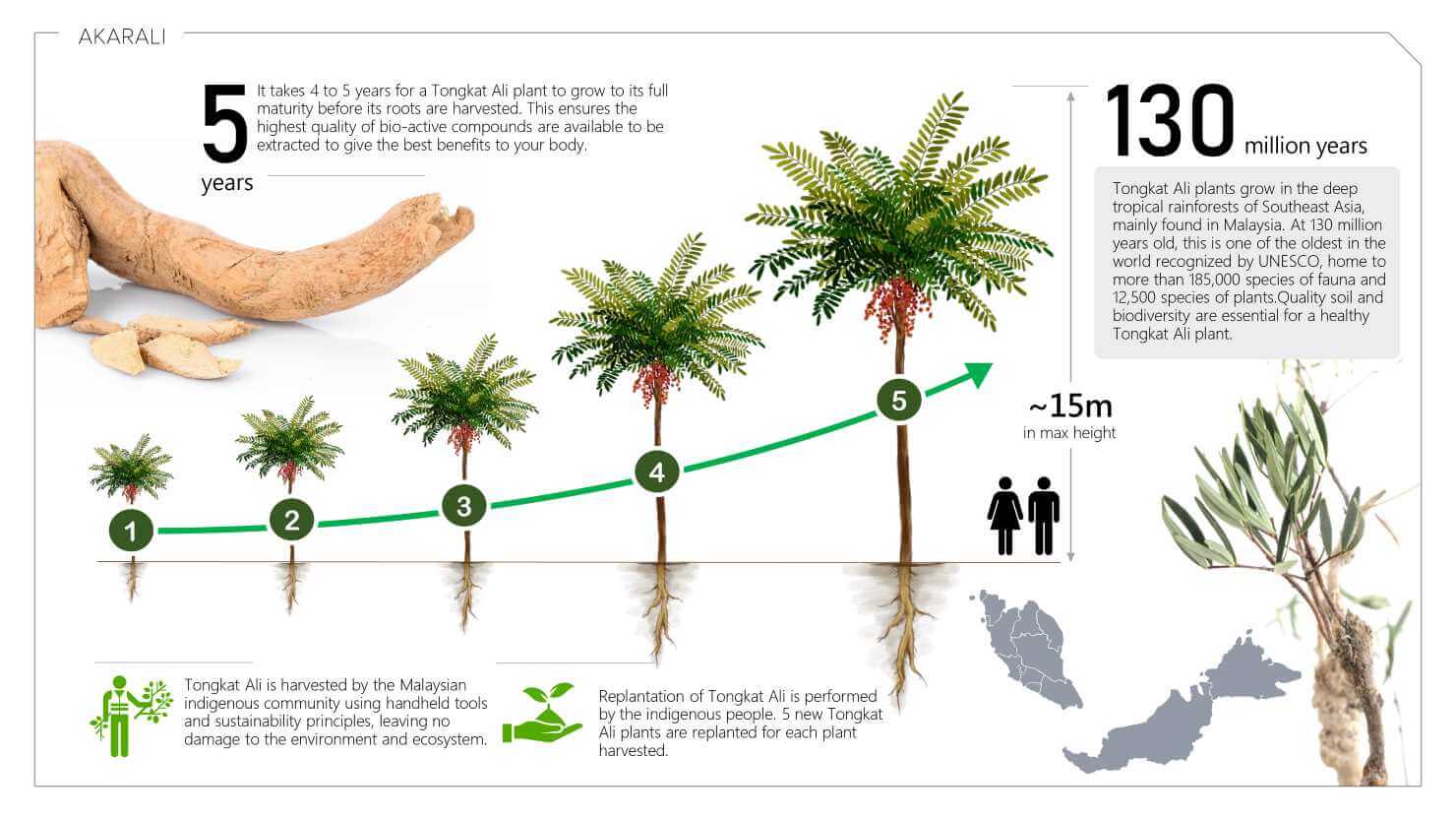
The mass adoption of Tongkat Ali is driven by Malaysia’s commercialization effort that began in the 1980s. Here are the key events and milestones that took place.
1800s
The original description of the Tongkat Ali species known as Eurycoma Longifolia was published in the Malayan Miscellanies, Volume 2, in 1822 by William Jack. A Tongkat Ali painting was presented as a gift to British leaders in the 1880s as a symbol of power used by the indigenous in Malaysia during the British Empire.
1900s
Tongkat Ali is exported as herbal medicine by the Gujaratis and traders who frequently dominate the Eurasian spice trade. Meanwhile Malaysian Tongkat Ali is mainly consumed in it’s traditional form, i.e by drinking the root extract from hot water boiling method.
1980 – 1990s
Tongkat Ali is sold without regulations by the health authorities and safety standards in Malaysia. Malaysians generally consume Tongkat Ali daily as an energy tonic and for its aphrodisiac properties. No scientific evidence was recorded during this period.
2000 – 2007
Malaysian Government announced it’s first biotech partnership with the Massachusetts Institute of Technology (MIT) to commercialize Tongkat Ali. The research involves developing new extraction technology and refining other protocols which include chromatography fingerprinting and indexing processes in 2003. This enables the identification of the best bioactive ingredients during the Tongkat Ali extraction process.
The world’s first patented Tongkat Ali extract known as Physta was born as a result of MIT-Malaysia research partnership in 2003.
2009-2010
Malaysian Sovereign Wealth Fund, Khazanah, invested more effort to accelerate the commercialization of Tongkat Ali through collaborative research effort. More studies were conducted to validate Tongkat Ali’s health benefits using Physta® hot water root extract technology.
2011
The Department of Standards Malaysia published the world’s first Tongkat Ali standards, known as the Malaysian Standard MS2409. The Malaysian Standard MS2409 prescribes the quality requirements and specifications of freeze-dried water extract derived from the dried roots of Tongkat Ali.
2015
The National Pharmaceutical Regulatory Agency (NPRA) of Malaysia (under the Ministry of Health) mentioned the use of Tongkat Ali as Traditional Medicine in the Malaysian Herbal Monograph, which was published in 2015.
2016-2022
Malaysia’s industry participation attracted more than 300 research studies and clinical trials conducted on Tongkat Ali. Leading the pack is Malaysia-formulated Physta® Tongkat Ali, a US-patented Tongkat Ali standardized hot water extract that serves as a new benchmark with more than 26 clinical trials conducted on men and women.
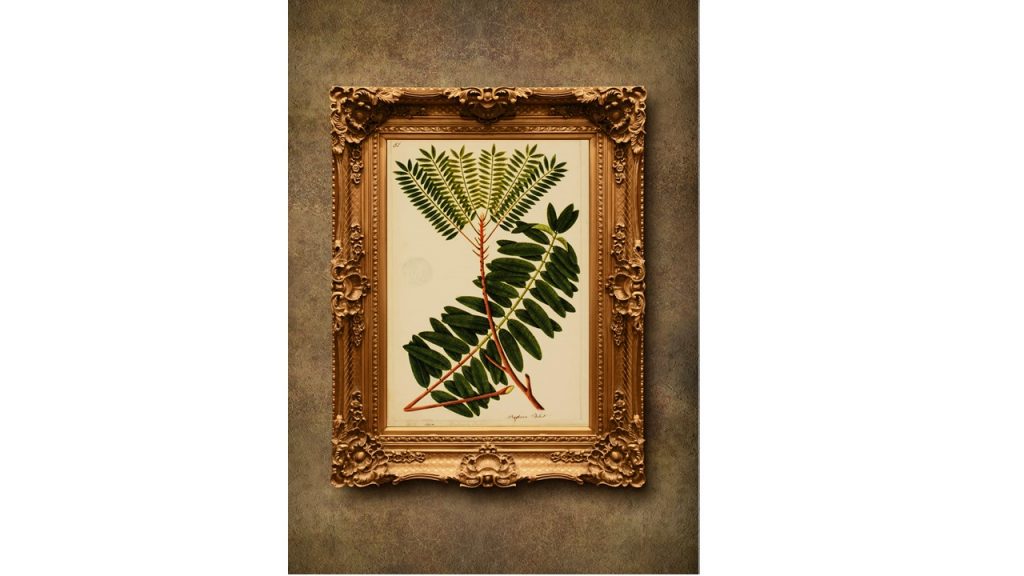
The painting of Tongkat Ali belonging to General William Farquhar was a gift by the Sultans when the British landed their foothold in Malaysia in 1786. And it was believed that Tongkat Ali was a symbol of power and status for Malaysian men, linked to masculinity and virility.
Tongkat Ali means Ali’s walking stick.
But there is more you need to know behind the direct Malay-to-English translation.
Tongkat:
The word “Tongkat” is a Malay word for a walking stick. Walking sticks are used by Malaysian elites and aristocrats, the British and the Dutch since 1800.
Walking sticks, or Tongkat, as they call it, are crafted from plants with a strong root, or bark.
Ali:
“Ali” literally means elevated, or champion in Arabic. It is believed that the word “Ali” originated from Sayyidina Ali Abi Talib, which is renowned as a paragon of manhood.
In recent times, Malaysians refer to Tongkat Ali as Akar Ali, which means Tongkat Ali’s root.
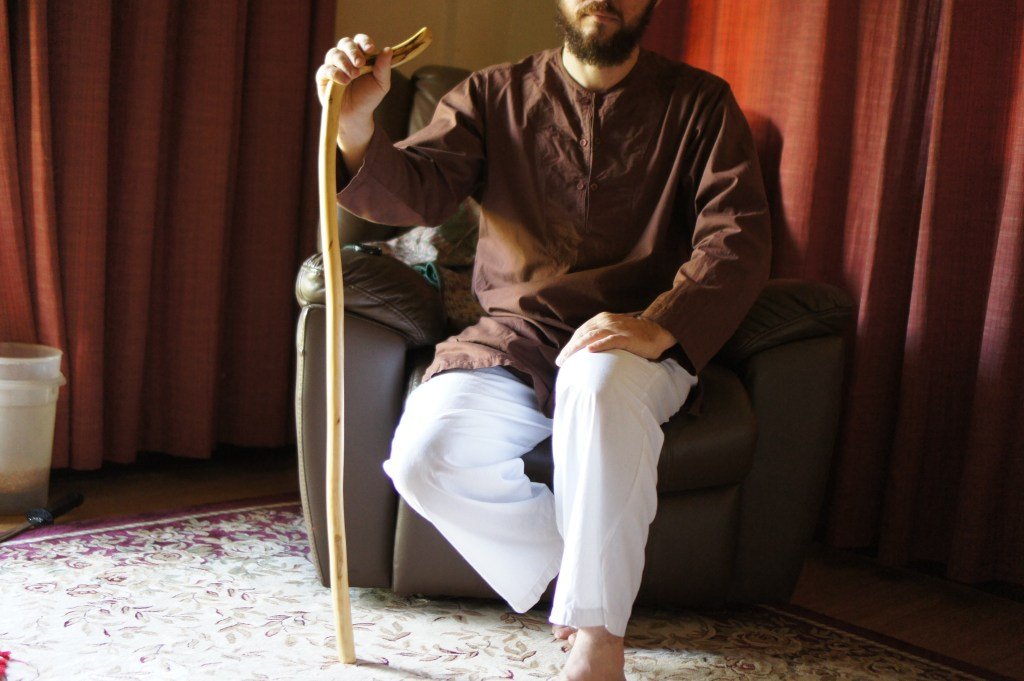
Example of a walking stick made from Tongkat Ali root by a Muslim American living in Malaysia. Credit: Bingregory
Singapore was once part of Malaysia. Both share the same culture, traditions, and diets – including Tongkat Ali.
Tongkat Ali is widely consumed by people in both countries as a daily herbal energy drink and to treat many types of illnesses such as flu, cold, malaria and others.
Tongkat Ali is categorized as Traditional Medicine in both countries and can be legally consumed or sold without restrictions.
For example, the Health Science Authorities Singapore allows the selling of natural herbs including Tongkat Ali.
Traditional Medicines are not subject to approvals and licensing by HSA for their importation, manufacture and sale.
Health Sciences Authorities (HSA) Singapore
Malaysian Tongkat Ali is popular in Singapore and you can find some good Tongkat Ali supplements in selected stores in Johor or Singapore.
Most Tongkat Ali in Singapore are sourced from Malaysia, but not all Tongkat Ali in Singapore are of high quality or clinically tested.
Here are quick facts about Tongkat Ali:
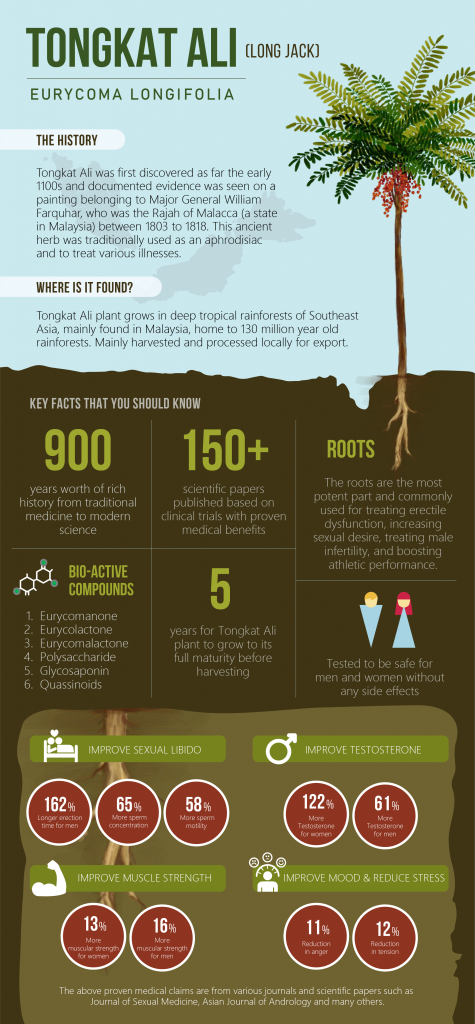
Quick facts about Tongkat Ali that you didnt know. Read more about Tongkat Ali FAQ.
Tongkat Ali demand is recording steady growth in the last decade with a sharp surge between 2021 to 2023 due to the wider acceptance by medical professionals and the health community.
Whilst global data suggested more than 10% annual growth, most of the shift was due to increased demand of clinically tested Tongkat Ali products from Malaysia.
On that note, Malaysian Tongkat Ali is recording a higher growth rate than Indonesian Tongkat Ali due to more clinical trials being published by Malaysian scientists in recent years.
Malaysian Tongkat Ali’s rising popularity surprised many healthcare professionals as consumers are seeking natural remedies that work, i.e clinically tested to work on humans.
A good example is the growing list of Tongkat Ali clinical studies from proprietary Malaysian-made Physta extract, which is formulated from a standardized hot water extract.
Significant investments by both public and private sectors have boosted the quality Tongkat Ali production in Malaysia.
Tongkat Ali’s versatility, efficacy, and more importantly, growing evidence of its health benefits by scientists and health experts are one of many reasons behind the growing demand.
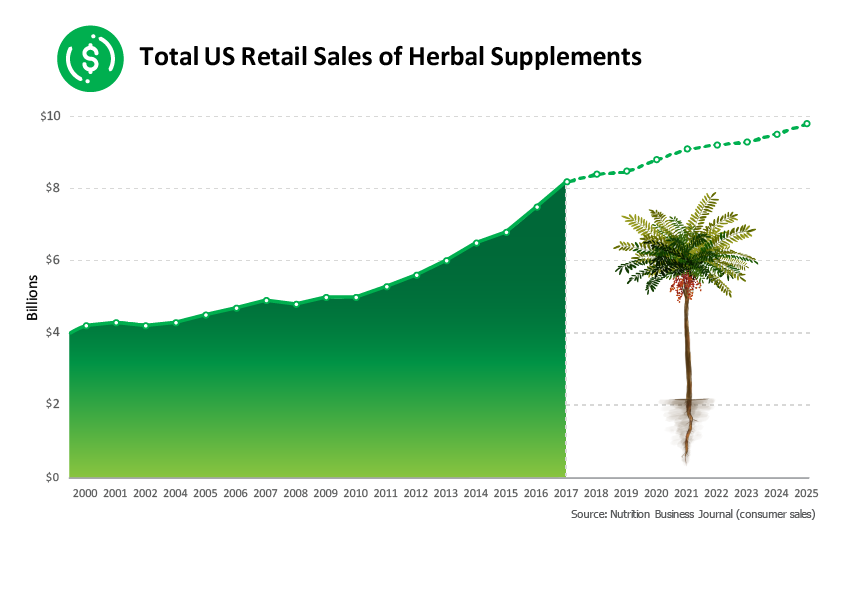
For discerning and well-informed consumers, Malaysian Tongkat Ali is the preferred choice amongst aging adults since it is clinically tested to benefit libido, testosterone, strength, stamina and the immune system.
Contrary to what Dr. Andrew Huberman (Stanford University) commented, Malaysia Tongkat Ali is highly regarded by medical professionals, herbal experts and scientists.
What is fueling the Tongkat Ali market today is the exponential sales from Malaysian Tongkat Ali manufacturers and global brands such as AKARALI.
In comparison to other herbs such as Turkesterone and Fadogia Agrestis, Malaysian Tongkat Ali stood the test of time as one of the best natural supplements for aging adults, active adults, and menopausal women too.
Malaysian Tongkat Ali is seen as a comparable alternative to the long-standing Panax Ginseng, although both have distinct differences and advantages depending on your health objectives.
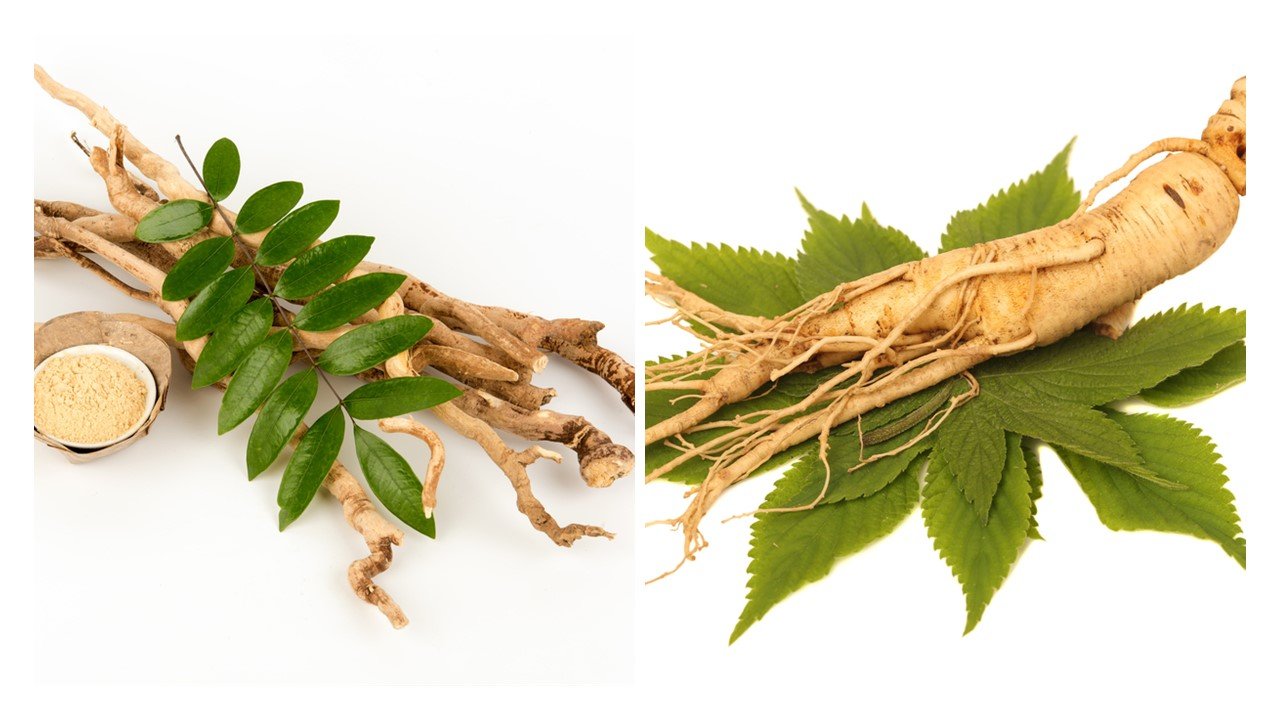
Left: Tongkat Ali (i.e Malaysian Ginseng) Right: Panax Ginseng. Can you tell the difference?
Malaysia is one the few countries in the world where you can source quality clinically tested Tongkat Ali supplements.
The fact is that Malaysian Tongkat Ali has gained new grounds and loyalty amongst discerning customers who are seeking fine quality Tongkat Ali supplements.
This makes Malaysian Tongkat Ali more reputable and trusted compared to Tongkat Ali from Indonesia, Thailand or Cambodia.
Most Tongkat Ali clinical trials using Yellow Malaysian Tongkat Ali extract are conducted by independent research institutions and organizations around the world – from USA, Japan, South Africa, Korea and Malaysia.
A known clinically tested Tongkat Ali, Physta, (which was jointly formulated by MIT and the Malaysian Government) achieved more than 26 clinical trials in the last two decades.
Buying a Malaysian Tongkat Ali product that is clinically tested gives me greater confidence
James Goodman, 39, Essex , United Kingdom
Asides from lab tests and clinical trials, Malaysian Tongkat Ali products are known to perform well in the real world.
This is helpful beyond the controlled lab-test environment.
There are more global scientists and researchers who are now spending time in Malaysia to learn more about Tongkat Ali and it’s potency to enable better health.
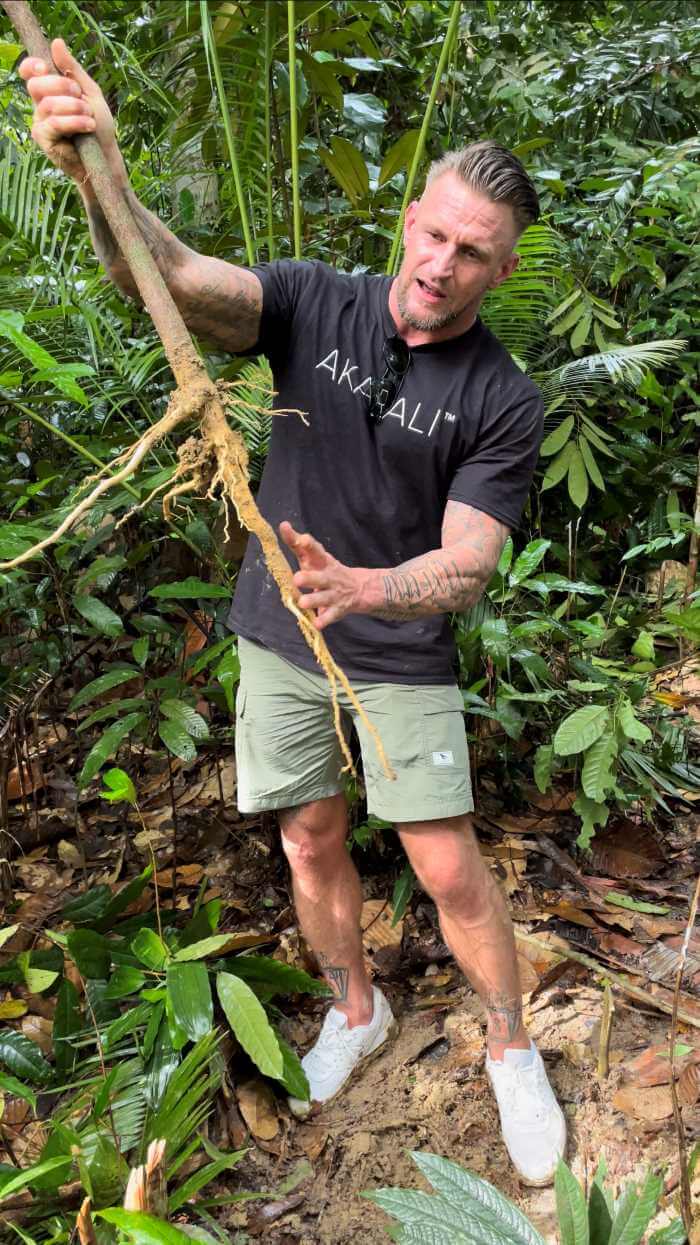
The top 10% of the best Tongkat Ali supplements in the market today contain Yellow Malaysian Tongkat Ali that are clinically tested and ethically sourced from reputable suppliers.
Single-origin Tongkat Ali supplements such as AKARALI source the best handpicked Tongkat Ali from the remote rainforests of Pahang, a state in the middle of Peninsular Malaysia.
In fact, experts believed that tropical rainforests in Malaysia have existed for 130 million years – making it older than the Amazon and the Congo.
This makes Malaysia blessed with the best soil to grow Tongkat Ali.
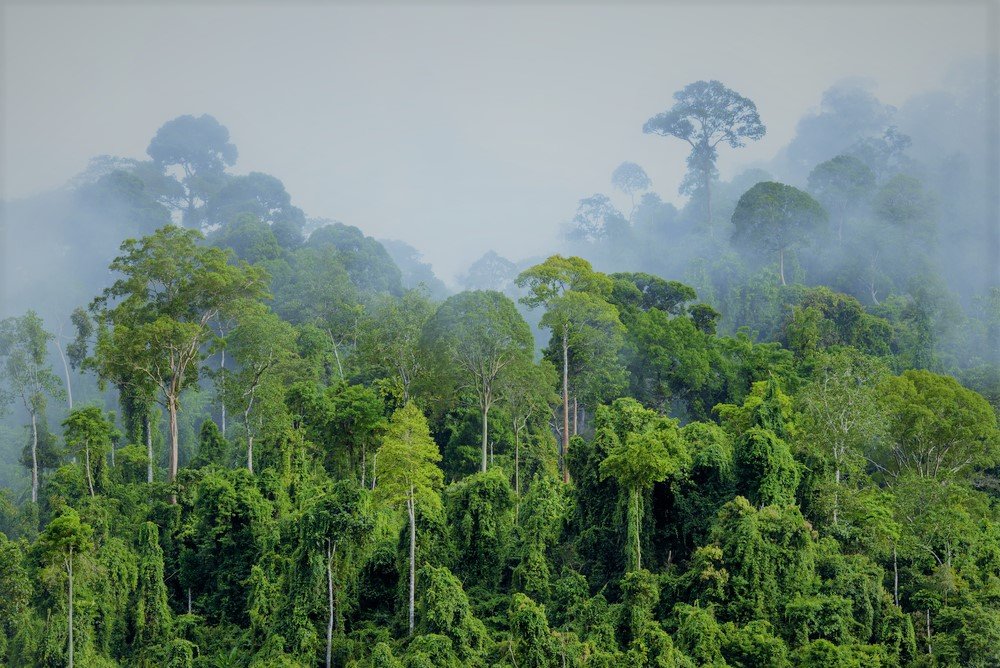
Malaysia has been a natural home for Tongkat Ali for millions of years and is home to some of the oldest tropical rainforests in the world.
Scientists found more than 185,000 species of fauna and 12,500 species of flowering plants in Malaysia and other deeper parts of Borneo. The forest reserves such as the Royal Belum State Park in Perak, was even recognized by the UNESCO World Heritage as being some of the oldest forests in the world.
Find out 5 reasons why Tongkat Ali in Malaysia is highly sought after here.
Being home to the oldest tropical rainforest has one unique advantage, as the soils are rich with nutrients and minerals known to humankind and are perfect for the proliferation of Tongkat Ali plants.
This results in higher bio-active compounds found in the Tongkat Ali roots.
Malaysian Tongkat Ali is well known to be free from human contamination, and pollutants and contain mercury levels below the USFDA permissible limit of 0.05 ppm.
Natural minerals are important for a healthy Tongkat Ali plant
Forest Research Institute Malaysia (FRIM)
Malaysia thus provides an ideal environment for Tongkat Ali plant to grow – a well-drained soil containing high organic matter content coupled with an annual rainfall of 2,000-3,000 mm in the optimal temperature range of 25–30ºC.
This makes it a perfect tropical climate to grow Tongkat Ali to its full potential.
You are assured that Tongkat Ali root from Malaysia has the highest bioactive ingredients – obtained from a healthy mature plant that lives in the best ecosystem on the planet.
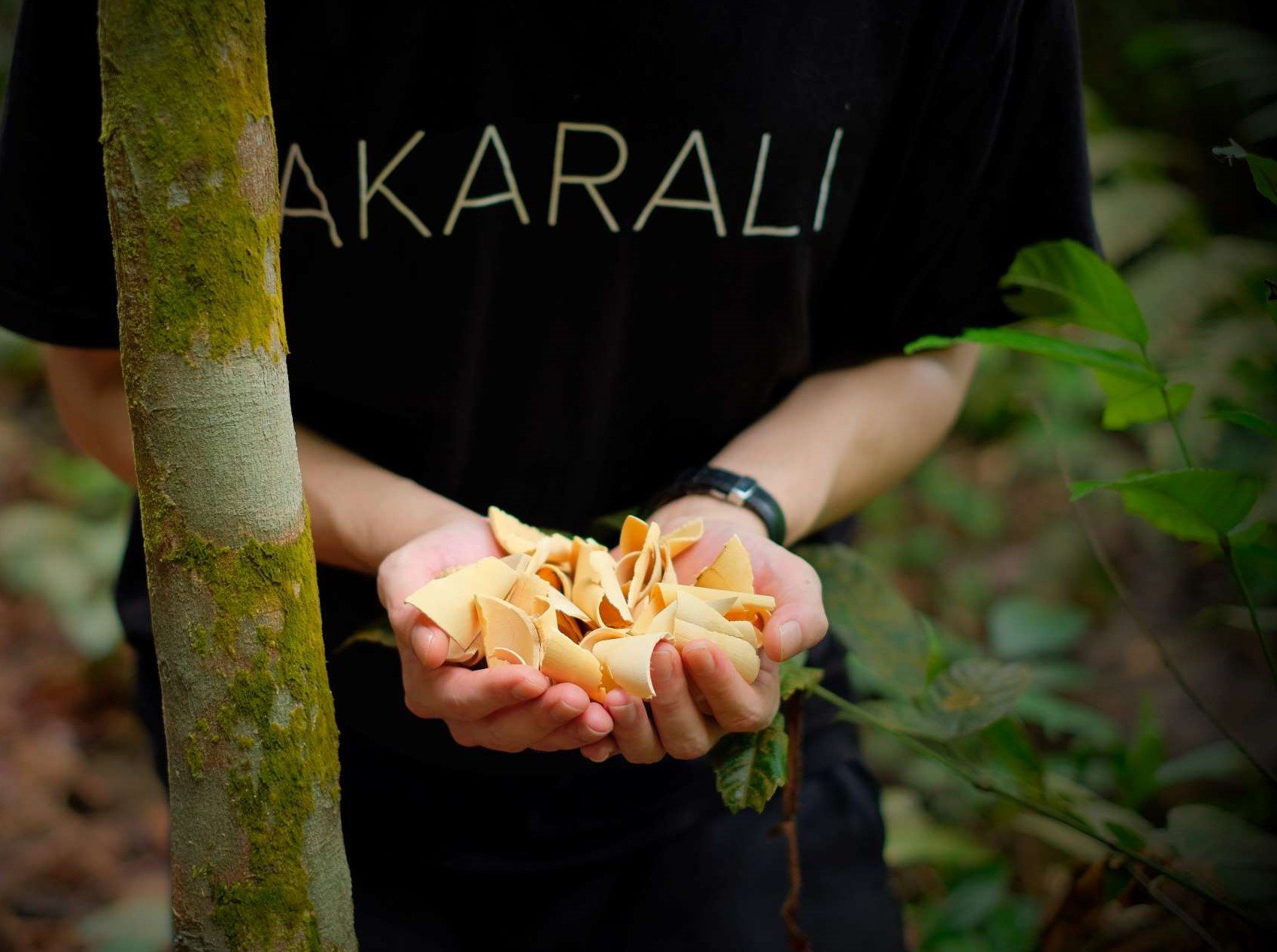
The best Tongkat Ali root in Malaysia can be visually identified from its strong creamy yellow tone with distinct bitter aftertaste.
Yes, for the reasons which we have explained earlier, Tongkat Ali from Malaysia is touted as the best due to quality soil composition, purity (free from contaminants), potency from years of clinical studies, and adherence to the highest quality and safety standards.
It is relatively safe to consume pure Malaysian Tongkat Ali and there have been no adverse effects and death reported in Malaysia.
But there are a few things you need to know.
Regardless of the wide range of marketing claims out there, no two roots of Tongkat Ali plants can produce the same level of potency.
This is where harvesting technique and standardization make a difference to the quality output of any Tongkat Ali extract.
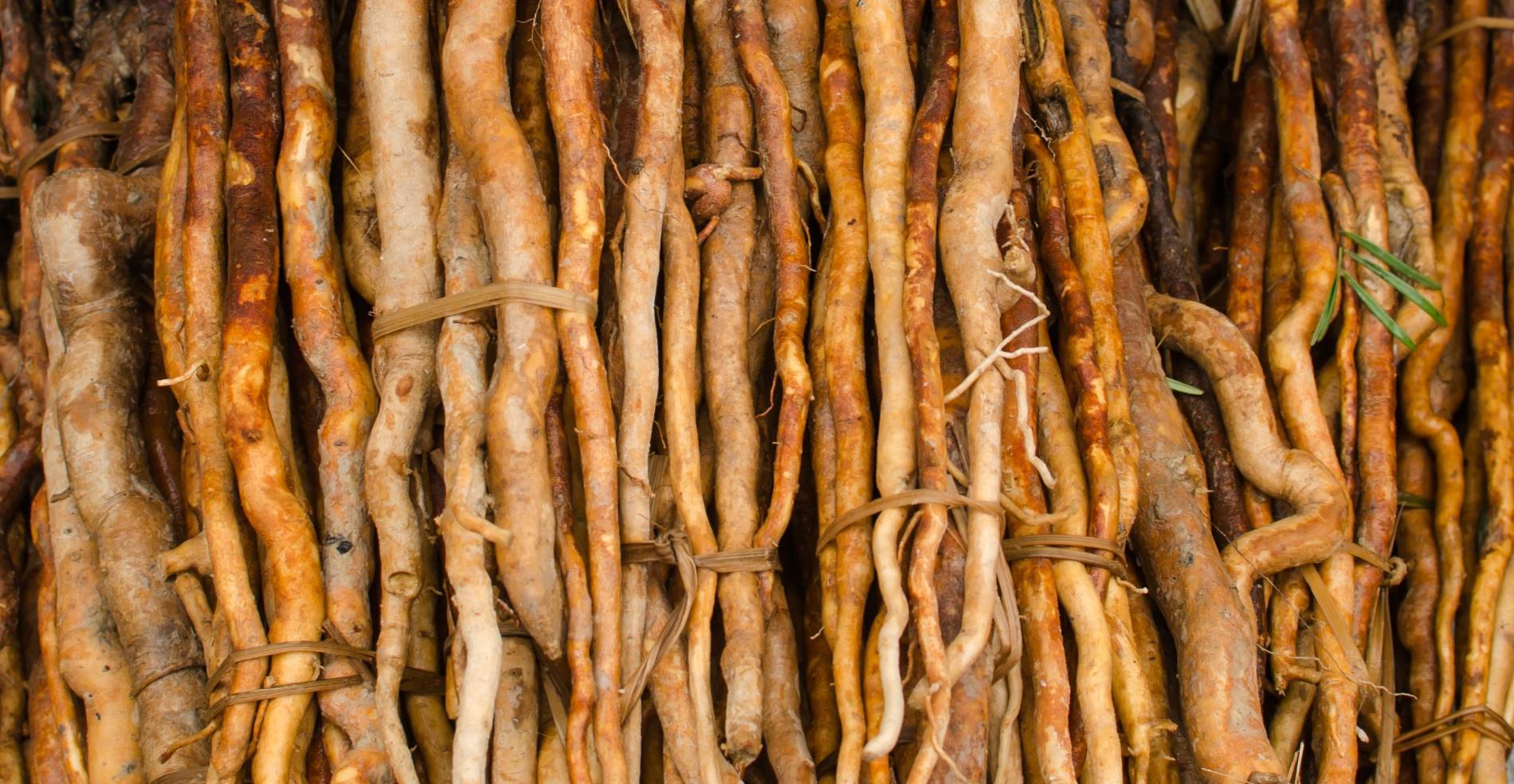
Each root needs to be visually inspected, before letting it air-dried to remove excess moisture before sending it to the manufacturing facility for further chromatography test.
Malaysia is one of the few countries that adopt best practices for Tongkat Ali harvesting.
Most Tongkat Ali plants at 2-3 years of age are found to start flowering and bearing fruit where the plant begins to mature steadily.
Although the plant can be harvested early at this age, the root is fully developed and there will be potential challenges in extracting the best bio-active compounds from the plant.
Yes, a 5-year old or older Tongkat Ali plant may have higher potency due to the high level of bioactive ingredients.
However, do consider its extraction method too.
Fine quality Tongkat Ali uses an extraction method that can extract the best bioactive ingredients that your body needs.

Depending on the locations in Malaysia, Yellow Tongkat Ali plants can grow as high as 15 meters, about five to six times the average height of humans.
Tongkat Ali in states of Pahang or Johor can grow more than 15 meters, but in this case, size does not matter!
Here is one example of a healthy and mature Tongkat Ali plant that we found in Malaysia.
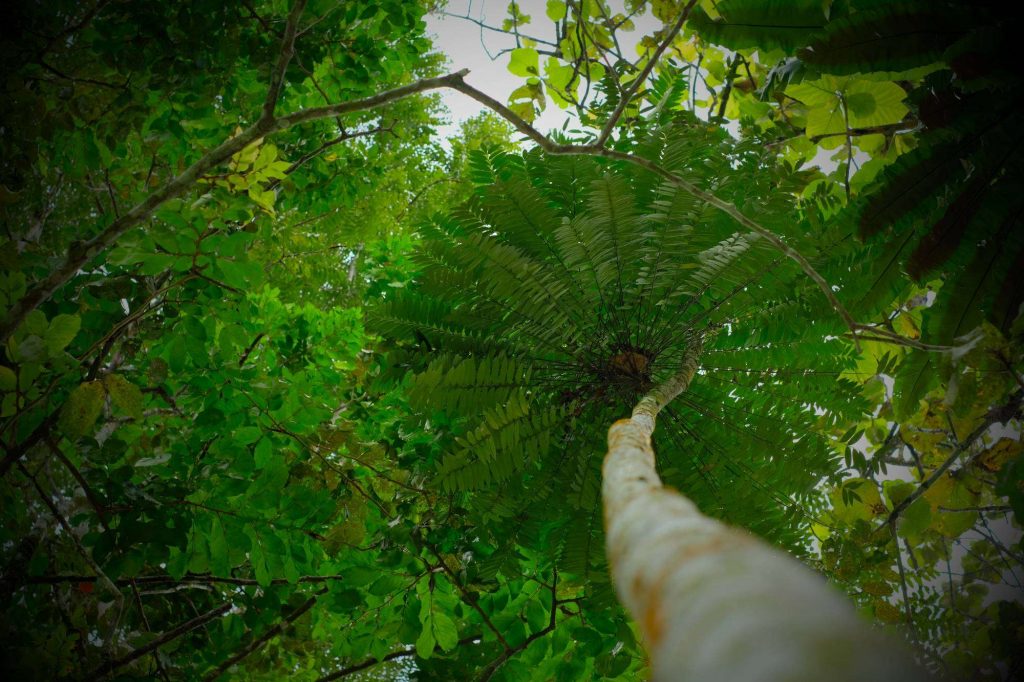
Tongkat Ali Malaysia can grow and compete with other plants in the deep rainforests.
Tongkat Ali had attracted a significant amount of herbal medicine hunters from all around the world.
Back in 2003, Chris Kilham, ventured deep into the Malaysian rainforests to debunk the myths on Tongkat Ali.
After days of extensive discovery and experiential journey, this is what he had to say about Tongkat Ali.
Watch this amazing documentary on ABC News featuring Medicine Hunter Chris Kilham’s exploration to Malaysia.
Tongkat Ali in Malaysia was relatively unknown in the United States 20 years ago.
Yes, Malaysian Tongkat Ali is better than Indonesian Tongkat Ali in many ways. But one thing that scares people away is the soil quality.
Indonesian soil is notoriously filled with high mercury levels due to massive mining activities in Sumatera and Kalimantan area.
Here are some facts.
So, would you consume agricultural products, vegetables or natural plants from soil that contains a high level of mercury?
Consumers must avoid buying Tongkat Ali from Indonesia at all cost. Tongkat Ali plant absorbs all the good, bad and toxic bio-active ingredients from the soil in order for it to grow.
Despite the fact that shellfish, tuna and seabass have a much higher level of mercury than Tongkat Ali, it may not be wise to consume Tongkat Ali from Indonesia.
So, you may want to think twice when buying Tongkat Ali from Indonesia.
Tongkat Ali is a valuable commodity in Malaysia and sustainability measures are put in place by the Government since 2008.
With that in mind, Tongkat Ali harvesting in Malaysia does not require an open-field planting nor it causes deforestation.
This is unlike other crops such as soy, palm oil which consumes acres or hectares of land space, causing massive damage to the environment.
Sustainability practices are adopted by most Tongkat Ali suppliers in Malaysia – from harvesting techniques, replantation programs, employment to education opportunities for the local indigenous communities.
Reputable Tongkat Ali brands such as AKARALI work directly with indigenous communities (Orang Asli) in Pahang to ensure that they are well-trained to adhere to sustainable practices.
For instance, the replantation programme ensures 3 new Tongkat Ali plants are replanted for every Tongkat Ali plant that is harvested for commercial use.
This is to ensure sustainability goals can be achieved for future generations.
Malaysian Tongkat Ali presents a unique proposition to those looking for authentic Tongkat Ali root-to-door experience.
However, despite its long history and evolution, not all Malaysian Tongkat Ali products are created equal. Only a few meet the benchmark of quality standards.
For instance, MIT-formulated Physta® Tongkat Ali extract is one of the best Tongkat Ali supplements in Malaysia that exceed consumer expectations and industry standards, making it one of the most popular Tongkat Ali brands on Amazon.
At the end, Malaysia will always be known for exceptional Government-backed quality Tongkat Ali products with quality peer-reviewed clinical trials that meet world standards.
If you are buying one, do check out our Frequently Asked Questions (FAQ) section for more guidance on Malaysian Tongkat Ali and others.


Naressa Khan contributes regularly on AKARALI. As a writer and journalist, Naressa is all about creating, deconstructing, and reassembling meanings through words. With this approach always in mind, she eagerly explores the nuances in life via the aspects of lifestyle, culture, travel, health, and wellness in Malaysia .
Disclaimer: Content published in this article is not intended to promote any brands nor to provide any form of recommendations to purchase or consume medication, drugs or herbal supplement brands directly or indirectly. By reading this, the sole responsibility and decision lies on the reader to perform their own assessment and / or to arrive at an informed decision based on publicly available information. By reading the content published on this website means you are aware on the risks involved in purchasing any of the products or brands mentioned in this article. We highly recommend you and the readers to consult your nearest doctor before making any purchase from this website or any other websites or social platforms after reading this article.
3 Responses
How can I order.
( MALAYSIAN TONGKAT CAPSULES).
REGARDS
TAB.
hi there, you can order Tongkat Ali from our website. Or do you require bulk order purchase? Let us know and drop us a line at sales@akarali.com
Hi Talat, you can order Tongkat Ali capsules from the Amazon store here:
https://www.amazon.com/Tongkat-Ali-Extract-Longjack-Akarali/dp/B08XJSFYYT